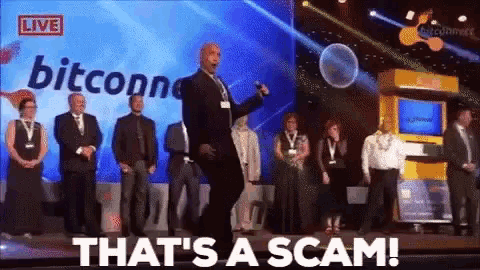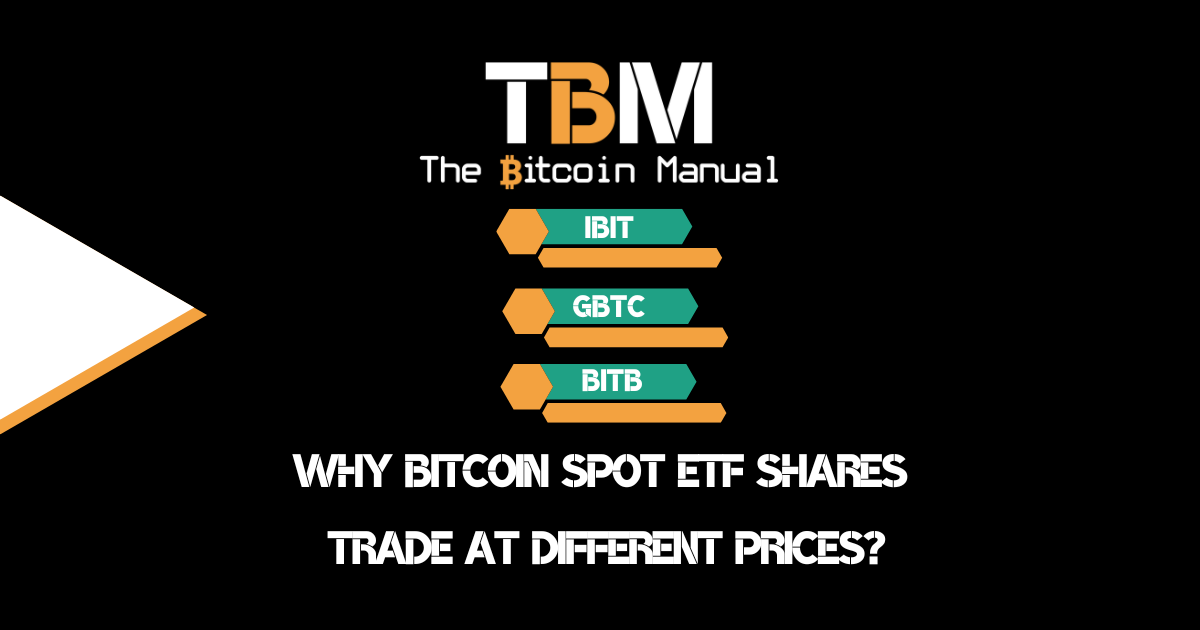So you want to get some Bitcoin, but you don’t have a bank account or credit card, or you do and don’t want to tie it to a Bitcoin purchase. Where do you go?
What if you have cash, physical cash? What do you do?
It’s not as if you can walk up to CoinBase or Binances offices, as if anyone knows where Binance is, and ask them to exchange your paper money for Bitcoin.
Sure, you can deposit your cash with your bank and transfer it to an exchange, but that’s not very non-KYC for you, and it defeats the purpose of using cash.
Alternatively, you can look at the dry-ass P2P market for physical settlement, but you’re going to have a bad time.
The only way to get instant liquidity for cash is to use a Bitcoin ATM.
As cryptocurrency adoption grows slowly, Bitcoin ATMs have become increasingly uncommon in convenience stores, shopping malls, and gas stations worldwide. (Except for the UK and Singapore).
While these machines offer convenient access to the Bitcoin economy, they’ve also become prime targets for fraudsters, and instead of blaming criminals, the media places the blame on Bitcoin and this network of ATMs.
Why? Because it’s provocative, it gets the people clicking; it gets the salty no coiners and Bitcoin derangement syndrome sufferers foaming at the mouth.
So why do these machines get such a bad rap? Well, let’s get into it.
Bitcoin ATMs are NOT scams
First, and I’ll say it louder for the people in the back, Bitcoin ATMs are not scams; legitimate businesses run them. These ATMs are a vehicle for converting cash into Bitcoin and vice versa.
That’s it; that’s the killer app.
So, how is that scammy? It’s not!
The scam revolves around syndicates encouraging their victims to transfer cash to the scammers’ wallets, a scam that has been doing the rounds long before Bitcoin came into the picture.
Before Bitcoin, scammers used retail or gaming vouchers like PSN vouchers, Apple iTunes vouchers, Amazon or Home Depot, etc; they’d get their victim to purchase these vouchers and then hand over the codes.
The codes are then resold online for a discount, or items are purchased and resold.
Now, is iTunes a scam? Is Playstation a scam? Is Amazon a scam? No, so how are Bitcoin ATMs a scam?
What scams frequently use Bitcoin ATMs?
- Investment Scams: Fraudsters pose as investment advisors or crypto experts, directing victims to deposit cash into Bitcoin ATMs with promises of high returns.
- Impersonation Schemes: Scammers pretend to be government officials, utility companies, or law enforcement, demanding immediate payment through Bitcoin ATMs to avoid alleged penalties or arrests.
- Romance Scams: After building trust through online relationships, fraudsters convince victims to send money via Bitcoin ATMs, often claiming they need help with an emergency.
- Tech support scam: This is a type of fraud where a scammer pretends to offer technical support services and masquerades as an official helpline.
- Sweepstakes scams: These scams are fraudulent schemes that target people by offering prizes that are too good to be true but require a payment upfront to qualify for said prize.

Why Bitcoin ATM Fraud Is Increasing
Scamming victims with vouchers is a bit of a pain in the arse; there’s a lot of friction involved and operational risk.
- The store could cancel the PIN code if you use said voucher and it’s flagged as fraud.
- If you use the voucher in-store, that purchase and camera footage could tie you to the scam.
- If you try to sell the voucher on a marketplace, you have to heavily discount it, likely between 30-60%, in order to get a sale, so you lose a lot of the value you’re scamming out of people.
When using Bitcoin ATMs for your scam, it offers:
- The irreversible nature of Bitcoin transactions makes it impossible for victims to recover their money once sent
- Many Bitcoin ATMs have high transaction limits and minimal identity verification requirements
- The general public’s limited understanding of cryptocurrency creates vulnerability to sophisticated scams
- The anonymous nature of cryptocurrency transactions attracts criminals
Since 2020, the amount consumers reported losing has increased nearly tenfold to over $110 million in 2023, while in the first six months of 2024, Americans lost $65 million to Bitcoin ATM scams.
The key driver in these scams is, without a doubt, the loneliness epidemic; people who refuse to touch grass are spending too much time online and as a result, they’re forming e-relationships that only lead to being broke and lonely.
Professor Pyg Butcher
Look, I get it; we’ve all been there.
Sydney Sweeney DMs you on Twitter, telling you how cute and funny you are and that it would be so cool if you sent her 1 Bitcoin; she’ll send you two back once she gets her Euphoria season 3 deal signed.

But okay, Sydney, explain this!
If it was the real Sydney and you’re reading this, I’m sorry, but you’re not getting my Bitcoin, EVER! Go get your own because you’re giving off major broke vibes, and it’s kinda giving me the ick!
Protecting Yourself
Consider these essential safety measures:
- Never send Bitcoin to someone you haven’t met in person
- Be extremely sceptical of anyone requesting payment via Bitcoin ATM
- Remember that government agencies and legitimate businesses don’t demand Bitcoin payments
- Take time to verify any investment opportunity independently
- If something seems too good to be true, it probably is

Get a Second Opinion
We seriously need shame and embarrassment to come back in a major way; it would save so many people from financial ruin. If you’ve met someone online and they’re asking you for money, consider explaining the situation to a family member or friend.
Tell them, hey, mom, dad, brother, sister, friend, would you come with me to the local gas station? I’m about to send $ 10,000 to a guy I met on Tinder with a strange Ghanaian accent.
If they don’t respond, Carol, I love you, but you’re a total moron; you might be in the clear!
Make the Scammers Squirm
Scammers prey on your emotions by exploiting your vulnerabilities. They use tactics like fear-mongering, creating a sense of urgency, or appealing to your sympathy to manipulate you into making decisions you wouldn’t normally make.
Alternatively, they may try a softer approach, with love bombing, where they may also use flattery or create a sense of trust to gain your confidence before asking for money or personal information.
Scammers are either playing on our fear response or our need to be loved and accepted; both effectively get us to lower our guard and do something out of the ordinary or against our interest.
But scammers are humans too; they are emotional beings with bills to pay and targets to hit; remember, this is their job, and the best way to get back at a scammer is to waste their time. The longer you do, the less time they have to scam others, and when they’re so close and invested, they tend to show cracks.
As someone who has dealt with my fair share of scammers, especially in the Bitcoin P2P trading market, I can tell you offhand very few of them can think on their feet and play to a script, so throwing oddball moves here and there can see, them break the frame and give up the gambit.
If you must test them, what I recommend doing is transferring the money into a Bitcoin wallet where YOU hold the private keys and act like a complete simpleton.
Show them the on-chain transaction with the date, and say something like:
- I sent it to the wrong address or to my address. How do I send it to you?
- I’m going to ask the Apple store to help me with this app
- I’m going to send the money back into cash and try again
The longer you jerk them around, the more annoyed they become, especially since they feel they’re just one step away from a payout; it’s glorious to watch them simp for these Satoshis.
The Response from Industry and Law Enforcement
Now, this is where things start to annoy me: just because people aren’t using critical reasoning skills, we all have to suffer. You willingly Google’d to find a Bitcoin ATM (Not always easy to find), then got out of bed, got dressed, drove to said ATM, and willingly paid a scammer from a public place, but the ATM network is the problem?
Make it make sense!
It doesn’t, but when enough people with Ethereum for brains cry foul, the big daddy government steps in, and now we’re seeing more onerous laws on Bitcoin ATM operators and law enforcement agencies are taking steps to combat fraud with:
- Enhanced customer verification requirements, aka KYC, on Bitcoin ATMs
- Transaction limits and monitoring
- Warning signs posted on machines
- Increased cooperation with law enforcement and stalking ATM locations
- Public education campaigns about common scams
Bitcoin ATMS are for turning trash into digital cash
As Bitcoin grows, we can expect these scammer numbers to swell; while Bitcoin is finite, the number of people who will fall for scams is endless. The numbers I quoted above were only for the US, so you can only imagine what it’s like globally.
And the wealthier these scammers get, the more they encourage copycats to join the gold rush.
If you are facing a request to pay money over into a Bitcoin ATM and it’s a company, tell them you no longer want their services; if it is a competition, tell them you’re already winning in life and don’t need the prize; if it’s a potential lover, unmatch and move on.
Ultimately, do nothing! The best defence is to hodl.
If you find yourself in front of a Bitcoin ATM in the future, make sure it’s only for your benefit and to fund your wallet.




